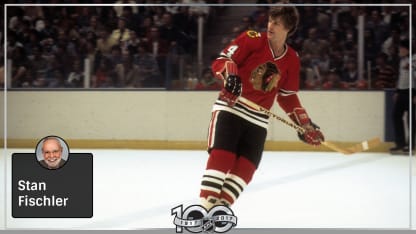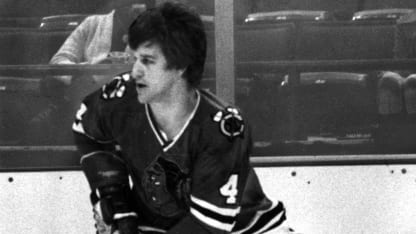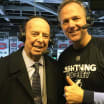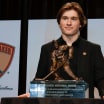He also had strong influence within the League. One of his closest friends was Bill Wirtz, owner of the Chicago Blackhawks and Chairman of the NHL Board of Governors.
Wirtz coveted a player like Orr, who controlled the game in the offensive and defensive zones. Although the Blackhawks finished first in the Smythe Division in 1975-76, they last won the Stanley Cup in 1961. Having Orr in the lineup could have ended that drought.
The Bruins, however, made a generous offer to retain Orr. But Orr had no idea how generous it was since he let Eagleson do the negotiating.
The talks between Eagleson and the Bruins began late in 1975. Because of his previous litany of injuries, Orr knew that his next contract with the Bruins could be his last.
No one detailed the events that followed more diligently than Russ Conway, a sports reporter for the Lawrence (Massachusetts) Eagle-Tribune. In his book "Game Misconduct: Alan Eagleson and the Corruption of Hockey," Conway wrote that Orr had no intention of leaving the Bruins.
"He wanted security and he wanted to finish out his career in Boston," Conway wrote. "As always, he left the negotiating to Eagleson."
There soon were rumblings about contract problems involving Eagleson and the Bruins. They made what was described as a "great offer," but Eagleson rejected it.
Meanwhile, Orr had been led to believe the Bruins had no intention of keeping him. As was his norm, Orr never personally entered the contract talks.
"That's why players have agents," he said. "To stay out of that crap."
Discouraged, Orr began considering free agent options. One of them was from the Blackhawks, where Eagleson said he would get a guaranteed multi-million dollar contract. It would, in fact, be the biggest in NHL history.
Word of the contract offer got to the Bruins, and general manager Harry Sinden adamantly asserted that negotiations were going smoothly and he was certain Orr would remain in Boston.
Conway talked to Sinden about the Bruins reportedly low-balling Orr.
"Sinden said that the Bruins had made Orr probably the best offer in hockey history, maybe in Boston pro sports history," Conway wrote. "But Eagleson had thumbed his nose at it."
At no time did Orr doubt that Eagleson had his best interests at heart. In fact, he accused the Bruins of trying to drive a wedge between himself and his agent. Much later, Orr realized that he had fingered the wrong culprit.
Without knowing all the facts, especially the huge contract the Bruins had in store for him, Orr took Eagleson's word that the Blackhawks' offer was the best.



















